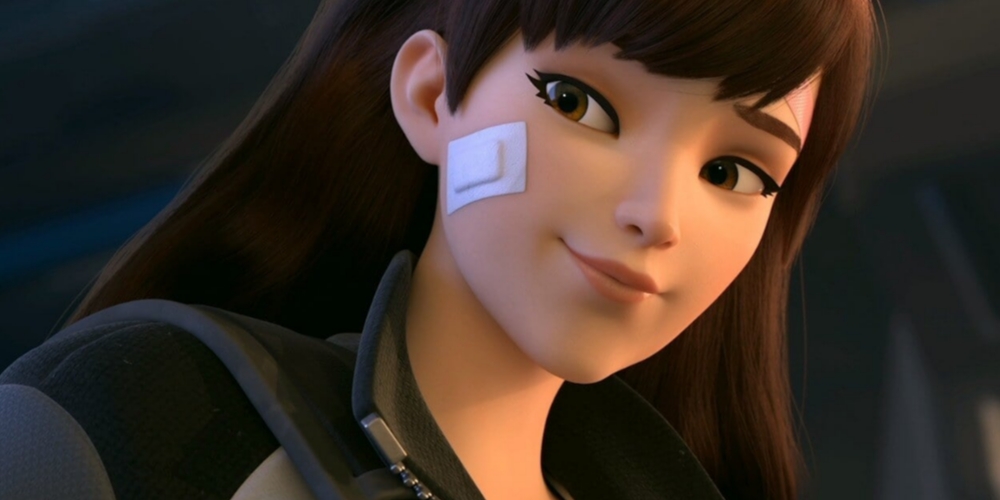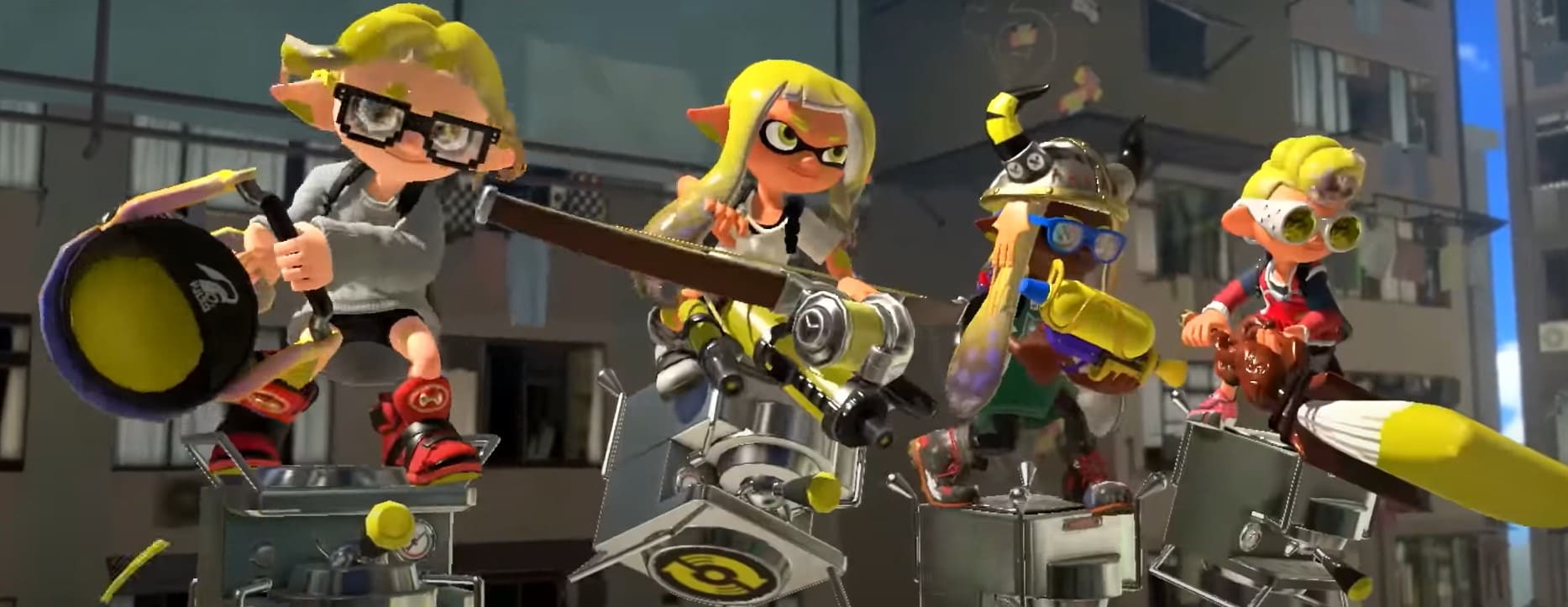
Why Support Is So Difficult
Overwatch 2 is notoriously difficult for support heroes. One of the biggest criticisms of the new game is that it changes what being a support player means. Instead of focusing on healing, support players are supposed to focus on doing everything from doing damage to making clutch saves in every team fight. Because of that, support is a difficult class that you need to adapt to in order to play well. So how do you play support well in Overwatch 2?
15. Corners Are Your Best Friend
While playing Overwatch 2, you’ll notice plenty of corners. Whether they be in spacious environments or cramped ones, you can always find a corner to fall back to in case you’re flanked. These corners limit the ways an enemy can attack you, narrowing your field of view and allowing you to defend yourself better.
Along with that, staying in a corner is easier for your teammates as well. If you call out that you’re in the left corner, that’s much easier to find than a random spot on a spacious map like Busan. If you want to stay alive longer, go to the corners and play in cover.
14. Always Wear Headphones
Headphones are imperative for competitive play, but using them for casual play will give you an advantage as well. As a support player, sound is everything. I’m a support player myself, and what I’ve noticed is that I play better when I use headphones. The reason why is because I can hear the details in the sound design. For example, I can hear the grunts of my teammates when they take damage, alerting me that they’re losing health and I need to heal them.
The sounds can alert you to a teammate needing help, an enemy attempting to sneak up behind you, when ultimates are being used, and how low on health you are.
13. Call Out Your Position
As a support, positioning is imperative to your survival. If you have poor positioning, you’ll need help to get out of the sticky situation. This is why calling out your position when you find yourself in trouble will help you survive longer.
Your team can’t help you if they don’t know where you are. A silent healer will receive little to no help because their teammates have no idea where they are. So, to prevent an early death, call out your position as accurately as possible and let your team know you’re in danger. Call out the danger as soon as it comes to you. Don’t wait for the enemy to do significant damage to you before calling it out.
If you wait too long, then the enemy will have already killed you by the time a teammate has arrived to help. Although they may avenge your death, it’s better to call the attack out early so you can stay alive.
12. Turn Music Volume Down
Wearing headphones allows you to hear the more intricate details in the sound design, but none of those details will matter if you can’t hear them over the blaring music. The music volume is useful to let you know when the match is close to ending. As the timer runs out, the music increases in intensity. However, this loud music can be distracting.
If you want to stay focused on the game, you should set your music to forty or lower. This keeps it loud enough that you notice it, but not so loud that it takes away from the sounds you really need to hear to perform well.
11. Take Time To Learn The Maps
In this case, experience really does help you out the most. The more you know the maps, the more you know where the health packs are and the best places to duck for cover. Support players need to know how to use the map to survive. That is why positioning is so important: if you know the map better than your opponents, you will have an advantage.
The most experienced support players know the maps so well that even when in a fight, they can backpedal to a health pack without needing to glance at it. Knowing the map also gives you positioning options. If you're an Ana player, for example, spend some time learning where the best high ground spots are so you can heal your teammates from a safe distance.
10. Switch If It Isn’t Working
A core gameplay mechanic of Overwatch 2 is hero swapping. If one hero isn’t working or doesn’t counter the enemy team well enough, you need to make switches. The same applies to support heroes. If you’re dying constantly, there’s a good chance who you’re playing doesn’t work against the enemy team.
If you’re playing Zenyatta and are dying constantly, you’re probably getting dived on by flankers or sniped by hitscans. Zen moves slowly, so he’s an easy target for those heroes. Although Zen is extremely useful, it does no one any good if you’re dying too much. If you’re dying too often or not impacting the game enough, switch to a different support.
The same applies to other heroes. If you’re getting sniped out of the air as Mercy, then you should switch to someone like Moira who can avoid those sniper shots better.
9. Play Other Roles
Support players need to have knowledge of other heroes. Although every Overwatch player should have basic knowledge of the heroes they’re going up against and playing with, support players need to have the most knowledge so they can work with their team.
For example, if you’re playing with a Zarya but don’t know her bubble cooldown, you won’t know when it’ll be okay to be aggressive since your Zarya can protect you. The same applies to the enemy team. If you see a Roadhog, you should know the cooldown on his hook so you know when to hide and when it’s safe to come out. The more game sense you have, the better you’ll perform.
To gain this experience, play other roles casually or at least play around with them in the practice range. The more you know about their cooldowns and abilities, the better of a support player you’ll become. Also, knowing each hero’s health is good knowledge, so you know who to prioritize when you’re playing support.
8. Utility, Not Heal Bot
Although healing on support is one of the most important parts of the job, remember that healing is not the only thing you should be doing. Even with main healers like Mercy, you should be adding more to your team than healing. Use your kit to support the team. Mercy, for example, can still boost damage despite the fact that her primary fire is healing.
The more utility you bring to your team, the better. With the team composition lowering from 6v6 to 5v5, you need to contribute more to each team fight. Each teammate matters more since there are fewer players.
To add utility to your team, first memorize your kit and how to use it. A hero like Baptiste has high utility since he has abilities like the immortality field. However, it has a long cooldown, so remember not to waste it and only use it in tense moments. As for other utility options, you should do a balance of damage and healing.
If you’re a hero like Ana, use her grenade against the enemy team as well as your own. The anti-healing factor will give you a huge advantage. It’s small utility plays like these that add up and give your team a huge advantage.
7. Don’t Be Scared
Although support players are supposed to stay with their team, or better yet, behind their team, that doesn’t mean they should be scared to do damage. Your primary role is to give your teammates utility, but if you see an opportunity to do damage, take it.
Heroes like Baptiste, Zenyatta, and Moira have high damage opportunities. Moira’s ultimate can heal and do damage at the same time; utilize that! Don’t be scared to get high damage and heals. You have a second support for a reason, so feel free to let them do a bit more healing while you do damage to contribute more to the team fight.
Also, if you have enemies coming after you, don’t tuck your tail between your legs and run. Call for help and fight back against your attacker. Not only will this score you a kill, but your teammates will reposition themselves to come to you, and from there, your team can push together.
6. Stay Close
Yes, you shouldn’t be scared to fight back, but you shouldn’t put yourself in a position where you have to. Stay close to your teammates and don’t stray too far from them. You’re playing support, not DPS. Thanks to this, you need to stay close not only for your own protection but so you can properly do your job as a support player.
Staying close also allows your teammates to remain in your line of sight. If you do get into trouble, you’re close enough to them that they can help you immediately. The closer you are to your team, the less likely you’ll die. Or, at the very least, there’s a higher chance that your team will eliminate whoever killed you.
5. Stay Mobile
Knowing your surroundings and practicing will help you stay mobile throughout the game. Try not to stay in the same position for too long. Even heroes like Ana, who heal from a distance, should try to move around. If you stay in the same place all the time, the enemy will know where you are and come after you first. After all, support players are the ones who keep their teammates alive; without you, your team is much more likely to fail.
There are some supports, like Lucio and Mercy, who are naturally mobile. They move much faster than other types of supports. Meanwhile, slow supports like Zen need to make up for their speed in other ways. You can keep yourself mobile by knowing the maps and using the corners and barriers to protect yourself. Always move around, and don’t be scared to jump and crouch to avoid enemy fire.
4. Check Stats
Checking your stats may seem trivial, but it’s actually a way for you to know how you and your teammates are doing. For example, if you’re playing Mercy and notice your Genji has the most kills and damage, you should damage boost him a bit more since he’s performing better. Small utility boosts like that can change the game.
Along with that, you can also see your own contribution to the game. If your stats are significantly lower than the other team’s supports, then you should strongly consider switching heroes so you can match, if not outdo, their performance. Thanks to this, checking stats is more important than you think.
3. Help Your Fellow Support
You should help every member on the team, but helping your fellow support in their time of need will help keep your team alive longer. The more support your team has, the better they can do. Even the best players need healing and support. After all, Overwatch 2 is a team game where the support players give the DPS and tanks a chance to stay in the action for longer.
If you help your fellow support, you’re saving them from death and giving your team more chances to stay in the action. If your fellow support dies, that’s a long walk for them (especially since support players like Ana and Zen tend to be slower) and leaves your team vulnerable. Also, your support friend will help you out too, so it’s only fair that you return the favor.
2. Coordinate, Coordinate, Coordinate
Once you know the kits of other heroes and you know the maps well, you can practice an imperative step in becoming a great support player: coordination. As much as callouts and knowledge are nice, they don’t mean much if you can’t coordinate with your teammates. For example, if you have your ultimate but can’t coordinate when to use it with your team, then there’s a higher chance that it won’t be used at the right moment.
Coordination not only keeps you alive longer, but it also allows the game to flow smoothly. If your teammates are talking to each other and coordinating their attacks, they’re organized and on the same page. No coordination leads to teammates rushing in by themselves, teammates randomly leaving you behind, and no combos.
As a support player, you can see most of the map. You’re with your team and observing the area. Mercy players in particular get a bird's-eye view of the map and can call out much more than, say, a Symmetra. So, as a support player, initiate the coordination and don’t be scared to speak.
1. Use Your Ultimate Wisely
Ultimates are game-changing abilities that should be used wisely, and support ultimates follow that rule. The defensive support ultimates are especially useful and should be used in intense team fights where it looks like your team is about to die or to counter an enemy offensive ultimate.
Other ultimates, such as Mercy’s and Moira’s, don’t require as much preserving since you can get them fast. They charge so quickly that you can get them in every team fight. For the other support heroes, you should use them wisely and consider when you’re going to use them.
This is also where coordination comes in. For example, if you’re playing Lucio, you can coordinate with your team that you’re going to use your ultimate to give your team a chance to push in. The shields will protect you and your teammates, and the coordination will tell them to push in as soon as you use your ultimate.
You May Also Be Interested In:
[Top 10] Best Overwatch DPS For Beginners
[Top 10] Best Overwatch Heroes For Competitive Play
Overwatch DPS Tier List [Overwatch Best And Worst DPS Revealed]
[Top 5] Overwatch Best Heroes For Solo Carry
[Top 10] Best Overwatch Heroes For Beginners That Are Powerful

























